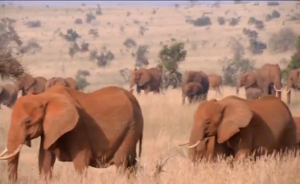
WITH wildlife and forest crimes on the rise, yielding enormous profits for criminal networks, high-level officials from the United Nations (UN) have warned that they fuel violence, corrupt supply chains and undermine the rule of law.
Speaking at a major anti-crime meeting in Doha, Qatar, co-hosted by the United Nations Office on Drugs and Crime (UNODC) and the Secretariat of the Convention on International Trade in Endangered Species of Wild Fauna and Flora (CITES), the head of the United Nations’ crime agency said all countries must treat wildlife and forest crimes as serious criminal offences.
“To confront wildlife crime we need to apply the techniques that we know are effective in fighting organised crime networks generally; intelligence sharing and undercover operations addressing corruption risks, going after the money, and tracking illegal goods to their destination ” said Yury Fedetov, Executive Director of United Nations Office on Drugs and Crime.
Wildlife and forest crime includes the taking, trading, importing, exporting, processing, possessing, obtaining and consumption of flora and fauna (animals, birds, fish, plants and trees) in contravention to national and international law.
The impact is global, but wildlife and forest crime is particularly acute in developing countries as under-resourced governments often lack the capacity to regulate the exploitation of their natural resources.
In 2013 alone, some 20,000 African elephants were slaughtered. In the same year, more than 1,000 rhinos were killed on the continent.
The total value of the illegal trade in wood-based products, usually from and within East Asia and the Pacific, is worth an estimated 17 billion U.S. dollars.
“Over a period of three years we estimate that anything up to 100,000 African elephants were killed for their Ivory. We can also look at the rhino. Just back in 2008 there were around ten or so rhinos that were poached for their horn. That has steadily increased to 2014 when it went over 1000. I could talk about the rosewood, I could talk about Pangolin and many other species; but what we are seeing is the involvement of translational organised criminal gangs, sometimes rebel militia or rogue elements of the military, that are deeply involved in the illegal trade of wildlife and they are stealing it at industrial levels,” said John Scanlon, Secretary General of Cites.
According to experts, illegal wildlife trade is not about local subsistence poaching. Today, the world is confronted by transnational organised criminal gangs, and in some cases, rebel militia and rogue elements of the military.
They are driving industrial scale poaching and illegal trade for illicit offshore markets.
“The UN has taken major steps to combat this illegal trade in wildlife. It is a part through the UN office of drugs and crime of the international consortium of combating wildlife crime known as ICCWC. This is the consortium of the society secretariat, Interpol, world customs organisation, UN office of drugs and crime and the World Bank, working together to provide co-ordinated support to countries and regions to combat this illegal trade,” Scanlon added.
The Doha Declaration, which is expected to be adopted at the Congress provides a further strong basis for states to put an end to the current high levels of illicit trafficking of wild fauna and flora.
The UN Crime Congress opened Sunday (April 12) and is expected to conclude on Sunday (April 19).
(Reuters)







